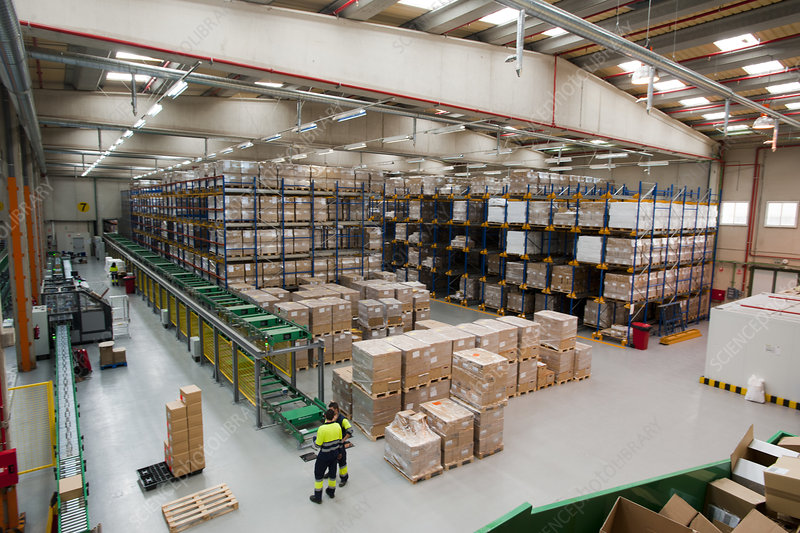In the ever-evolving landscape of healthcare, efficient and reliable logistics play a pivotal role in ensuring the seamless delivery of pharmaceuticals and medical supplies. Healthcare logistics, encompassing pharmaceutical logistics and pharma supply chains, is a complex web of processes that demands precision, speed, and adherence to strict regulatory standards. This article delves into the intricacies of healthcare logistics, highlighting the challenges faced by healthcare logistics companies and the strategies employed to overcome them.
The Landscape of Healthcare Logistics
Understanding Pharmaceutical Logistics
Pharmaceutical logistics involves the management and transportation of pharmaceutical products from manufacturers to distributors, pharmacies, and ultimately, to healthcare providers. The unique nature of pharmaceuticals, often requiring specific storage conditions and stringent regulatory compliance, adds layers of complexity to the logistics process.
Challenges in Pharma Supply Chains
One of the primary challenges in pharmaceutical logistics is the need for temperature-controlled transportation. Many medications and vaccines are highly sensitive to temperature variations, and any deviation from the recommended conditions can compromise their efficacy. This necessitates specialized vehicles and storage facilities, contributing to the overall cost and complexity of the supply chain.
Moreover, regulatory compliance is a critical aspect of pharmaceutical logistics. Adhering to various international and local regulations requires meticulous documentation and a deep understanding of the legal frameworks governing the transport of pharmaceuticals. Failure to comply can lead to delays, financial losses, and, more importantly, compromise patient safety.
Navigating the Healthcare Logistics Maze
Advanced Tracking and Monitoring Systems
To address the challenges inherent in healthcare logistics, companies are increasingly adopting advanced tracking and monitoring systems. Real-time visibility into the location and condition of pharmaceutical shipments enables swift responses to any deviations from optimal conditions. This not only ensures the integrity of the products but also allows for proactive measures to be taken in case of unforeseen events, such as delays or route diversions.
Integration of Data Analytics
Data analytics is becoming a game-changer in healthcare logistics. By harnessing the power of big data, companies can optimize routes, predict demand patterns, and enhance overall supply chain efficiency. Predictive analytics, in particular, enables healthcare logistics companies to anticipate potential disruptions and take preemptive actions, minimizing the impact on the supply chain.
Collaboration and Information Sharing
In an industry as interconnected as healthcare logistics, collaboration is key. Partnerships between pharmaceutical companies, logistics providers, and regulatory bodies foster a more integrated and resilient supply chain. Information sharing, facilitated by digital platforms, ensures that all stakeholders are on the same page, reducing the likelihood of errors and streamlining the entire process.
The Evolution of Healthcare Logistics Companies
Specialized Expertise
Healthcare logistics companies are adapting to the evolving needs of the industry by developing specialized expertise. This includes investing in personnel with a deep understanding of pharmaceutical regulations, temperature-sensitive logistics, and the intricacies of global supply chains. Such expertise is crucial in navigating the complexities of healthcare logistics and ensuring the safe and timely delivery of critical medical supplies.
Technological Innovations
Embracing technological innovations is a hallmark of progressive healthcare logistics companies. Automation, robotics, and artificial intelligence are being employed to enhance the efficiency of warehouse operations, order processing, and inventory management. Automated systems not only reduce the risk of human errors but also expedite the entire logistics process, contributing to faster and more reliable deliveries.
Environmental Sustainability
In response to growing concerns about environmental sustainability, healthcare logistics companies are increasingly adopting eco-friendly practices. From the use of electric vehicles in transportation to the implementation of energy-efficient warehouse facilities, the industry is taking steps to minimize its carbon footprint. This not only aligns with global sustainability goals but also enhances the reputation of healthcare logistics companies as responsible corporate citizens.
Future Trends in Healthcare Logistics
Blockchain for Enhanced Traceability
As the demand for transparency in supply chains continues to rise, blockchain technology is emerging as a powerful tool in healthcare logistics. Blockchain provides an immutable and transparent ledger that allows for the seamless tracking and tracing of pharmaceutical products. This not only enhances the visibility of the supply chain but also ensures the authenticity of the products, mitigating the risk of counterfeit medications entering the market.
Personalized Medicine and Logistics Challenges
The rise of personalized medicine poses unique challenges to healthcare logistics. Unlike traditional pharmaceuticals, personalized medicines often require custom manufacturing processes and tailored distribution models. Healthcare logistics companies must adapt to the individualized nature of these treatments, developing flexible supply chain strategies that can accommodate the specific requirements of personalized medicine.
Global Health Events and Supply Chain Resilience
The COVID-19 pandemic underscored the vulnerabilities in global healthcare supply chains. Healthcare logistics companies are now placing a greater emphasis on building resilient and adaptable supply chains that can withstand unforeseen disruptions. This includes diversifying sourcing options, stockpiling critical medical supplies, and developing contingency plans to ensure a continuous and reliable supply of healthcare products during global health crises.
Conclusion: N Favigating theuture of Healthcare Logistics
In conclusion, the field of healthcare logistics is undergoing a transformative journey, driven by technological advancements, increased regulatory scrutiny, and the ever-growing demand for efficient and reliable supply chains. Pharma logistics and pharma supply chains are evolving to meet the challenges of the 21st century, with healthcare logistics companies at the forefront of innovation. As the industry continues to navigate the complexities of personalized medicine, environmental sustainability, and global health events, the key to success lies in adaptability, collaboration, and a relentless commitment to the safe and timely delivery of healthcare products.


